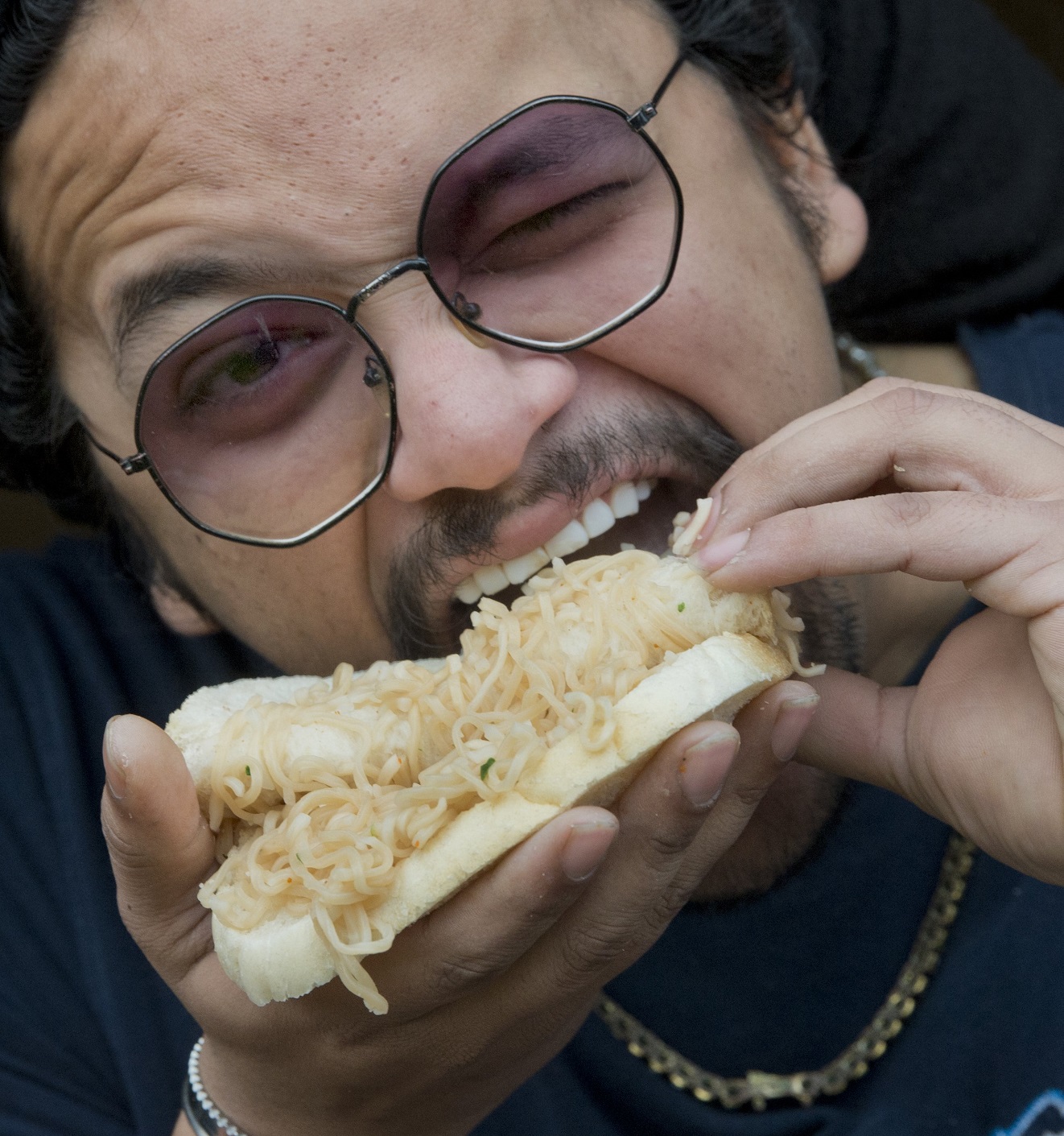But a nutritionist is warning that while high-carb food is easy on the wallet, it can be hard on the stomach and put students more at risk of illness.
The Otago Daily Times spoke to students outside supermarkets across Dunedin this week to get an insight into this cost-cutting approach to eating.
University of Otago student Ryan Cook said he combined two meals into one and had white rice with sriracha sauce for "dinch" the previous night.
"Yeah, I eat ‘dinch’ — that’s my lunch and dinner," he said.
Mr Cook, who was at New World to buy a 24-pack of Speight’s and a bag of Doritos, said sleeping instead of eating dinner was not unheard of.
"It’s probably a mix of being really lazy and too broke for Uber Eats," he said.
His friend and fellow student Josh White said his go-to "broke boy" meal was to pour whatever cans were in the pantry into a pot and boil.
"Generally, I always have things like beans and canned vegetables in the pantry, so I just chuck it in a pot and call it stew," Mr White said.
Abdulrahman Ali, an international student from Saudi Arabia, gave his recipe for cooking up noodle sandwiches, one of his staple meals.
Turning to the stove, he would throw a block of ramen noodles into a pot of cold water and start stirring away with a spoon before turning on the element.
When he finished cooking, he carefully laid out strands of ramen on a piece of white bread before aggressively jamming another slice on top.
Mr Ali said he sometimes ate just one or two meals a day.
"If I go to the gym, my protein [powder] would be my meal" he added.
Mr Ali said one of his favourite cheap and convenient meals was instant macaroni cheese.

Other students the Otago Daily Times interviewed had more traditional meal choices.
Oliver Peake said he was going to make a steak and mushroom pie for his flat for dinner.
"Yeah, we try to eat well," Mr Peake said.
Another student, Brooke Scott, said groceries were not a problem for her since her parents paid for her food.
"I can cook well and Dad lets me buy whatever I want, so life is good at the moment," she said.
Mary Spiers, a senior professional practice fellow in the human nutrition department at the University of Otago, said students could lack confidence in the kitchen.
"Students are coming from a reasonably supportive home environment, and then they come to university and they transition from halls of residence and often into flatting in second year," she said.
"It takes a little bit of time to get used to having good dietary practices and cooking habits."
Study, social life and looking after themselves for the first time created a challenge for students in terms of healthy eating, especially those with a very limited food budget, Ms Spiers said.
High-carbohydrate diets like these students were eating affected their immunity.
"They might be more at risk of picking up the common cold, the flu and Covid, so that is going to add stress and anxiety."
Ms Spiers suggested practising cooking when on visits home, and to keep some staples such as eggs, frozen vegetables and flour in the pantry.
"An old-fashioned soup mix and any vegetables that you have not had the chance to use cooked into a soup is a good hearty meal," she said.








